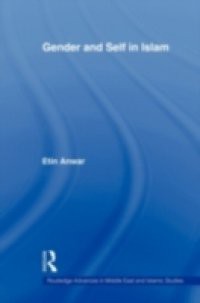Using philosophical analysis, this book explores the construction of gender in Muslim societies and its implication to the constitution of the self. The root of the existing discourse of the hierarchical principle is examined as is the extent to which the process of human reproduction, especially the role of women in conception, contributes to an anti-egalitarian theory of gender. The author analyzes the theological, cultural and political apparatus of the masculine conception of femininity and seeks to unfold the process of the alienation of the self from a woman's sense of individuality, agency, and autonomy. Incorporating traditional Islamic sources, Western feminist texts and Christian texts, Gender and Self in Islam seeks to restructure the contradictory claims of gender hierarchy and egalitarianism and elaborate an alternative set of interpretations that is friendly and inclusive of women.

